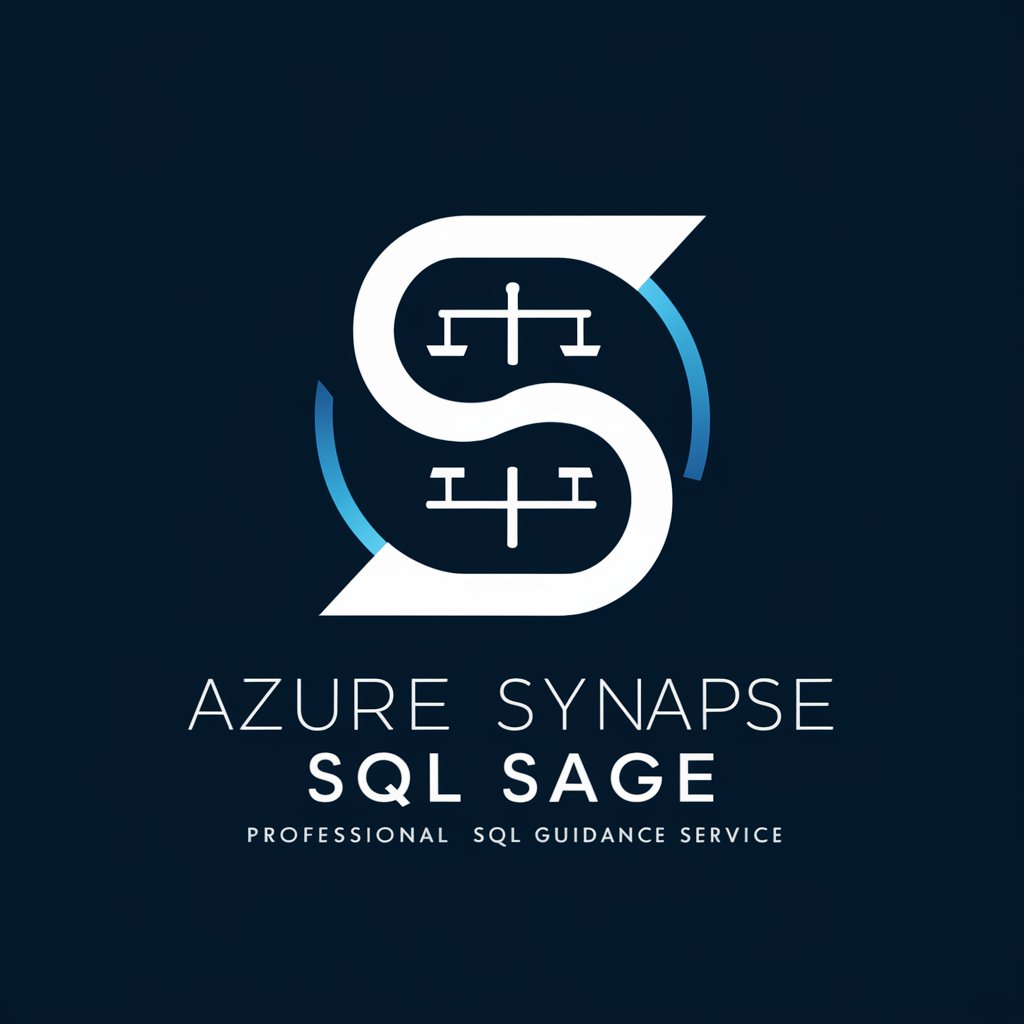
Azure AD Sage - Azure AD Configuration Aid

Hello! I'm here to help you master Azure AD attributes and claims.
AI-powered Azure AD Expertise
How can I configure custom attributes in Azure AD?
What are the best practices for managing user claims?
Can you guide me through troubleshooting Azure AD sync issues?
What steps should I take to set up claim rules in Azure AD?
Get Embed Code
Introduction to Azure AD Sage
Azure AD Sage is a specialized GPT designed to provide expert-level guidance and technical assistance on Azure Active Directory (Azure AD). It focuses on delivering in-depth knowledge about the configuration and management of user attributes and claims in tokens. Azure AD Sage is tailored for IT professionals, system administrators, and developers who work with Azure AD in various capacities. It helps in troubleshooting issues, configuring settings, and optimizing the use of Azure AD functionalities. For example, Azure AD Sage can assist in setting up dynamic groups based on user attributes, or in configuring conditional access policies that are critical for securing applications. Powered by ChatGPT-4o。

Main Functions of Azure AD Sage
Claims Customization
Example
Customizing claims issued in tokens for a SaaS application.
Scenario
A company needs to ensure that their SaaS application receives specific claims that include user's department and role. Azure AD Sage guides through the process of editing claim issuance policies using custom rules in Azure AD to ensure these claims are correctly added to the token.
Attribute Management
Example
Synchronizing and managing user attributes across directories.
Scenario
An organization transitioning from an on-premise AD to Azure AD needs to ensure all user attributes are correctly synchronized and available in Azure AD. Azure AD Sage provides expertise on configuring Azure AD Connect with attribute filtering and synchronization rules.
Security and Compliance Advising
Example
Implementing conditional access based on user risk level.
Scenario
A financial institution requires that users accessing sensitive data have a low risk profile and comply with specific security policies. Azure AD Sage assists in setting up and configuring Azure AD Identity Protection policies to enforce conditional access based on the user risk level detected.
Ideal Users of Azure AD Sage Services
IT Administrators and System Engineers
These professionals benefit from Azure AD Sage by obtaining detailed guidance on managing and securing Azure AD environments, particularly in complex scenarios involving multiple directories and hybrid setups.
Security Professionals
Security experts utilize Azure AD Sage to enhance their understanding and implementation of security policies within Azure AD, including advanced scenarios involving conditional access, MFA setups, and compliance requirements.
Application Developers
Developers working on applications that integrate with Azure AD for authentication and authorization find Azure AD Sage invaluable for understanding how to manage and use claims effectively, ensuring their applications handle identity management securely and efficiently.

How to Use Azure AD Sage
Step 1
Visit yeschat.ai for a free trial without login, no need for ChatGPT Plus.
Step 2
Explore the primary features and functionalities available in Azure AD Sage to familiarize yourself with the system.
Step 3
Utilize the detailed Q&A section to find answers to common questions or issues regarding Azure Active Directory configurations and troubleshooting.
Step 4
Apply the guidance provided by Azure AD Sage directly to your Azure AD environment, carefully implementing attribute configurations and claim setups.
Step 5
Regularly check for updates on new capabilities and enhanced features of Azure AD Sage to ensure optimal use and up-to-date information.
Try other advanced and practical GPTs
Mr. Carver's Accounting Expert
Empower your finance decisions with AI

Inkspire
Your Vision, Our Canvas: AI-Powered Tattoo Designs

Podcast Niche Finder
Unleash Your Podcast Potential with AI

Sarah
Your AI-powered Efficiency Partner

Copy Fascination Bot
Transforming Words into Action with AI

Inspire Timer
Inspiration at every interval

Fashion Scout
Your AI-Powered Stylist

Interactive Training Modules for Orthoptists
Empowering Orthoptists with AI-Driven Learning

Conselheiro Financeiro e Investidor
Empowering Financial Decisions with AI

Solucionador React
Empowering developers with AI-driven coding assistance

GermanMentor
Master German with AI-Powered Tutoring

MineBugs
Empowering your Minecraft experience with AI

Frequently Asked Questions about Azure AD Sage
What is Azure AD Sage?
Azure AD Sage is an advanced AI-driven platform specialized in Azure Active Directory configurations, specifically focusing on user attributes and claims within tokens.
How can Azure AD Sage help optimize Azure AD operations?
By providing detailed, specific guidance on setting up and managing user attributes and token claims, Azure AD Sage aids in refining access control and ensuring security compliance within an Azure AD environment.
Can Azure AD Sage assist with troubleshooting Azure AD issues?
Yes, Azure AD Sage offers troubleshooting advice and best practice recommendations to resolve common and complex issues encountered in Azure Active Directory setups.
What are the common use cases for Azure AD Sage?
Common use cases include detailed configuration of user attributes, setup of conditional access policies, and the management of security tokens to enhance organizational security and compliance.
Does Azure AD Sage provide real-time updates and guidance?
While Azure AD Sage does not offer real-time updates, it regularly incorporates the latest Azure AD advancements and practices in its guidance to provide users with up-to-date information and strategies.





